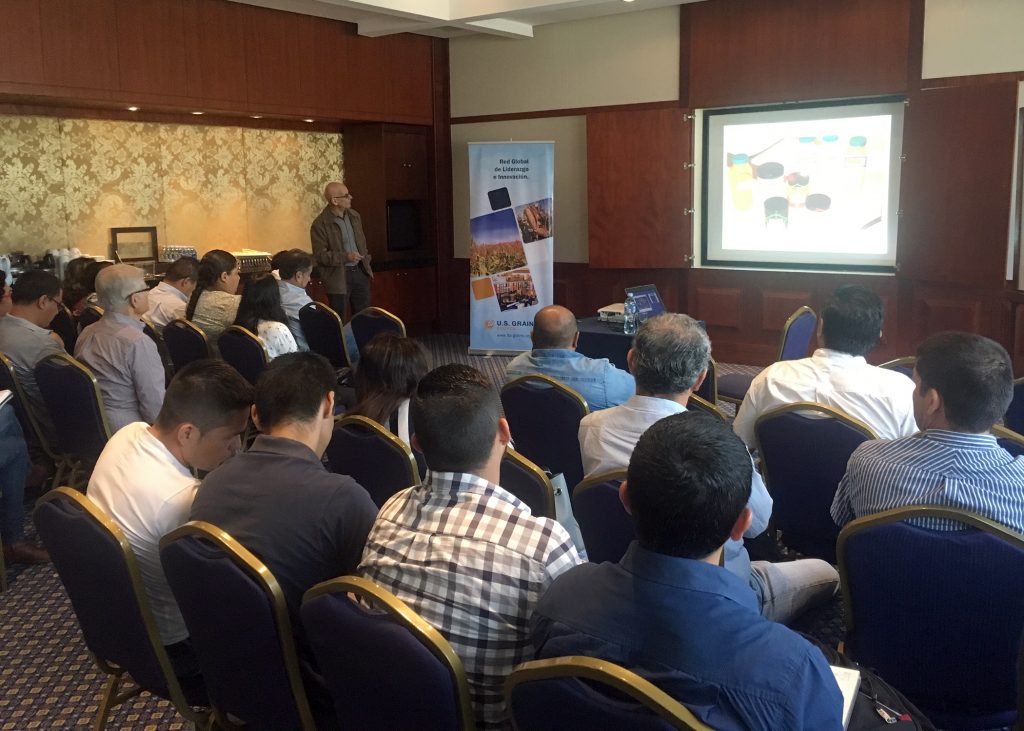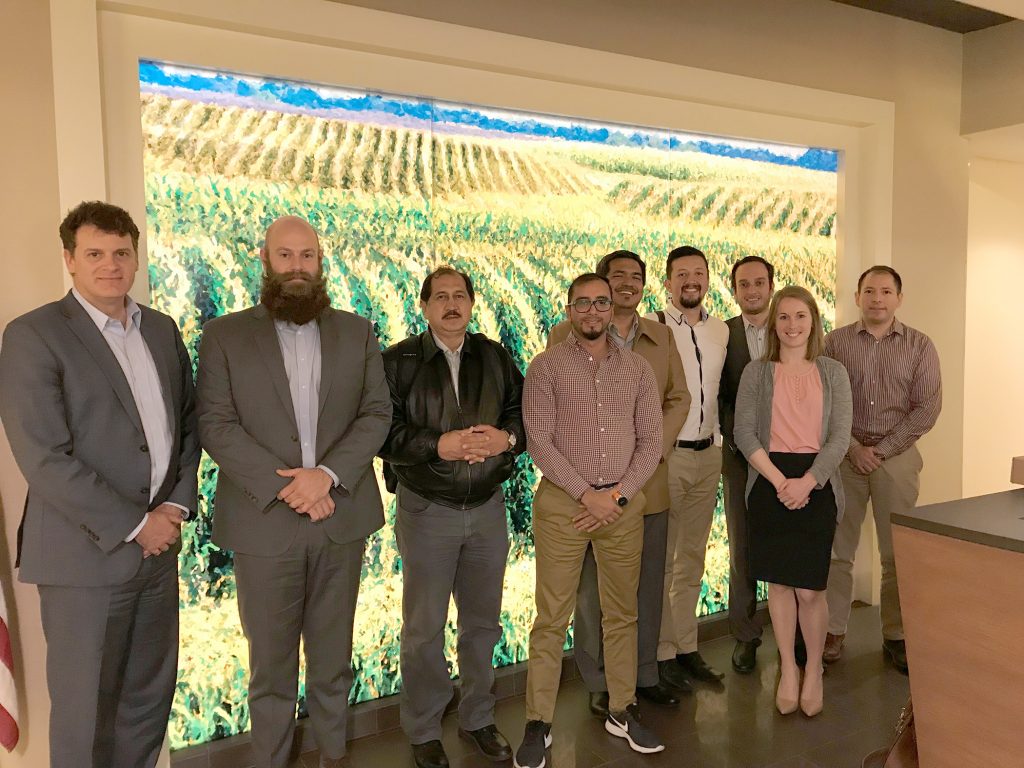Identifying how U.S. feed grains and co-products can meet the specific demands of a local market is the specialty of the U.S. Grains Council’s (USGC) staff around the world. In Ecuador, the Council is successfully helping swine and poultry producers improve their feed formulations using U.S. distiller’s dried grains with solubles (DDGS) and is exploring how U.S. ethanol can help the country meet its blend mandate.
Ecuador is a corn-producing nation, backed by a government self-sufficiency policy. In the past few years, however, the local corn crop has not been sufficient to meet domestic demand, resulting in expensive prices and government-issued import permits.
In contrast, Ecuador is able to import U.S. DDGS, though only a few livestock producers were aware of the feed ingredient before the Council commenced a flurry of activities to introduce it to local feed industries.
Since December 2016, the Council has conducted DDGS-specific programs throughout Ecuador. The in-country programs focused on Central American and Mexican nutritionists sharing their knowledge of DDGS with Ecuadorian counterparts. Expanded nutritional conferences for both the poultry and swine sectors in 2018 have reached around 100 current and potential end-users.
A team to the United States in November 2017 supplemented these in-country educational efforts. The trade team brought Ecuadorian livestock producers and ingredient distributors to Minnesota and New Orleans to gain information on the DDGS production process, export logistics and nutritional information for DDGS in poultry and swine diets.
These programs also helped current and potential end-users understand how DDGS is produced in the United States and how it is managed through the U.S. export system until reaching export destinations like Ecuador.
While the resulting sales to Ecuador represent smaller overall market volume, U.S. DDGS imports have increased substantially. Ecuador imported nearly 12,500 metric tons in 2016/2017, more than double the nearly 5,600 tons imported the year before. Thus far this marketing year (September 2017 to March 2018), Ecuador has purchased 4,950 tons of U.S. DDGS.
“Our programs are giving end-users confidence in using U.S. DDGS, which has been directly reflected in imports,” said Marri Tejada, USGC regional director for the Western Hemisphere. “Potential for further growth exists with continued competitive prices and continued educational efforts to reach a higher number of swine and poultry producers.”
As the Council is pursuing even more market share for U.S. DDGS, the organization is also exploring opportunities for another U.S. corn co-product, ethanol.
The Council invited government representatives and industry leaders from Ecuador to attend the Ethanol Summit of the Americas in October 2017. That conference brought together ethanol industry leaders from 15 countries across the Western Hemisphere to share experiences with and the potential for use of ethanol in their own domestic industries.
Following the Summit, the Ecuadorian industry reached out to the Council for assistance in increasing capabilities to meet their current blend mandate since local industry only produces enough ethanol to meet about 40 percent of that demand. The Council is encouraging the Ecuadorian government to look to the global ethanol market to realize their ethanol goals and save on the costs of government subsidies related to the import of finished gasoline.
As part of this educational effort, the Council facilitated meetings for an Ecuadorian delegation, including high-level government representatives, in its Washington, D.C. offices in April 2018 as part of the U.S. Department of Agriculture’s (USDA’s) Cochran Fellowship Program, which provides in-depth training opportunities for agricultural professionals in emerging markets.
The program included presentations from USDA’s Foreign Agricultural Service (FAS) as well as the Council’s ethanol-focused staff and consultants. Speakers discussed policy opportunities for biofuels as well as the benefits of ethanol for reducing greenhouse gas (GHG) emissions and improving human health.
The Council plans on expanding educational efforts for both ethanol and DDGS in the coming year, working hard to meet the needs of the Ecuadorian livestock industry and transportation sector.
“The Council’s strategy in Ecuador focuses on growing U.S. market share by extending the use of corn co-products,” Tejada said. “The Council will continue providing additional educational activities to promote better buying practices and understanding the value U.S. corn co-products offer.”
About The U.S. Grains Council
The U.S. Grains Council develops export markets for U.S. barley, corn, sorghum and related products including distiller’s dried grains with solubles (DDGS) and ethanol. With full-time presence in 28 locations, the Council operates programs in more than 50 countries and the European Union. The Council believes exports are vital to global economic development and to U.S. agriculture’s profitability. Detailed information about the Council and its programs is online at www.grains.org.


